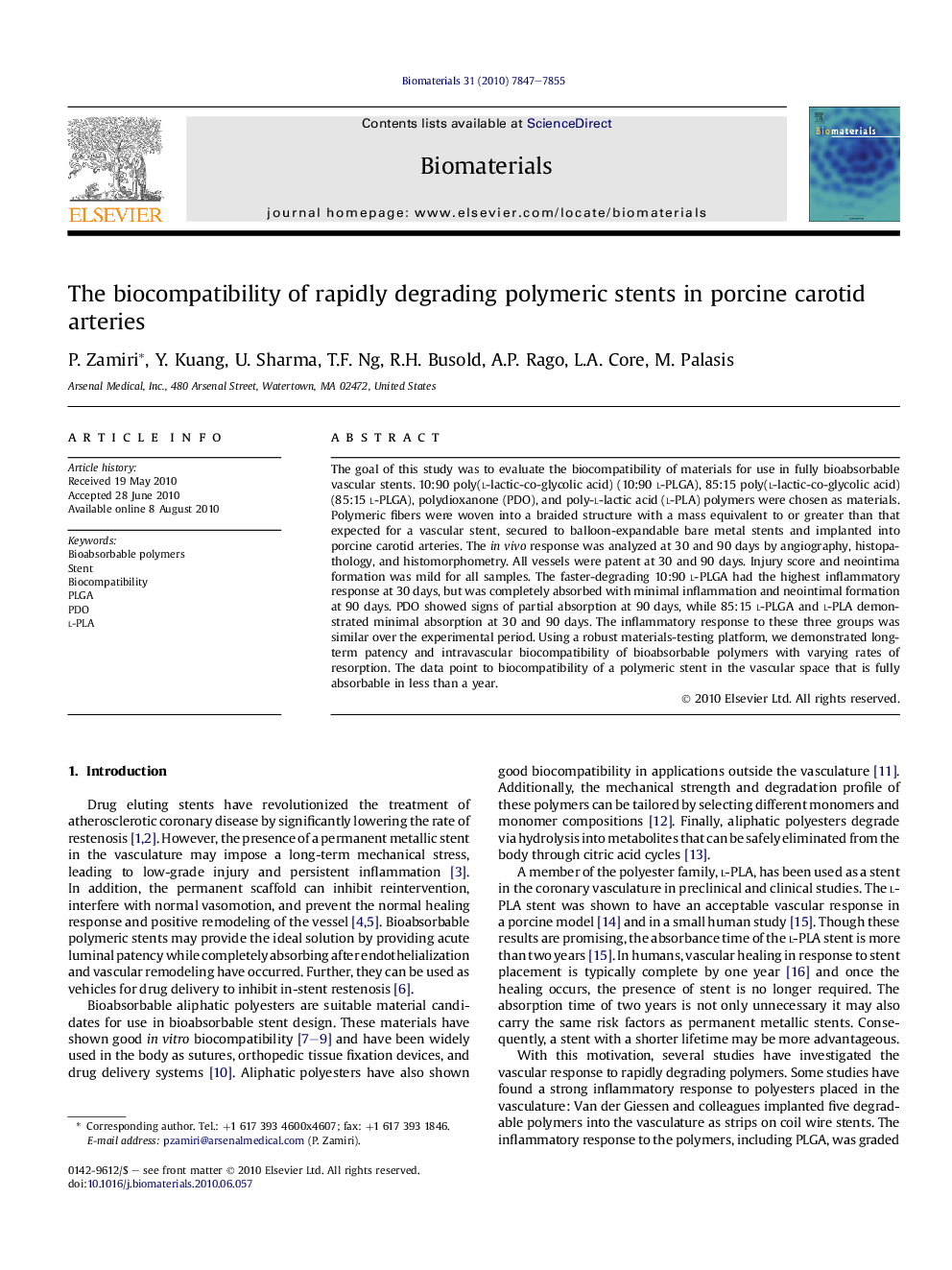| کد مقاله | کد نشریه | سال انتشار | مقاله انگلیسی | نسخه تمام متن |
|---|---|---|---|---|
| 8042 | 575 | 2010 | 9 صفحه PDF | دانلود رایگان |

The goal of this study was to evaluate the biocompatibility of materials for use in fully bioabsorbable vascular stents. 10:90 poly(l-lactic-co-glycolic acid) (10:90 l-PLGA), 85:15 poly(l-lactic-co-glycolic acid) (85:15 l-PLGA), polydioxanone (PDO), and poly-l-lactic acid (l-PLA) polymers were chosen as materials. Polymeric fibers were woven into a braided structure with a mass equivalent to or greater than that expected for a vascular stent, secured to balloon-expandable bare metal stents and implanted into porcine carotid arteries. The in vivo response was analyzed at 30 and 90 days by angiography, histopathology, and histomorphometry. All vessels were patent at 30 and 90 days. Injury score and neointima formation was mild for all samples. The faster-degrading 10:90 l-PLGA had the highest inflammatory response at 30 days, but was completely absorbed with minimal inflammation and neointimal formation at 90 days. PDO showed signs of partial absorption at 90 days, while 85:15 l-PLGA and l-PLA demonstrated minimal absorption at 30 and 90 days. The inflammatory response to these three groups was similar over the experimental period. Using a robust materials-testing platform, we demonstrated long-term patency and intravascular biocompatibility of bioabsorbable polymers with varying rates of resorption. The data point to biocompatibility of a polymeric stent in the vascular space that is fully absorbable in less than a year.
Journal: Biomaterials - Volume 31, Issue 31, November 2010, Pages 7847–7855